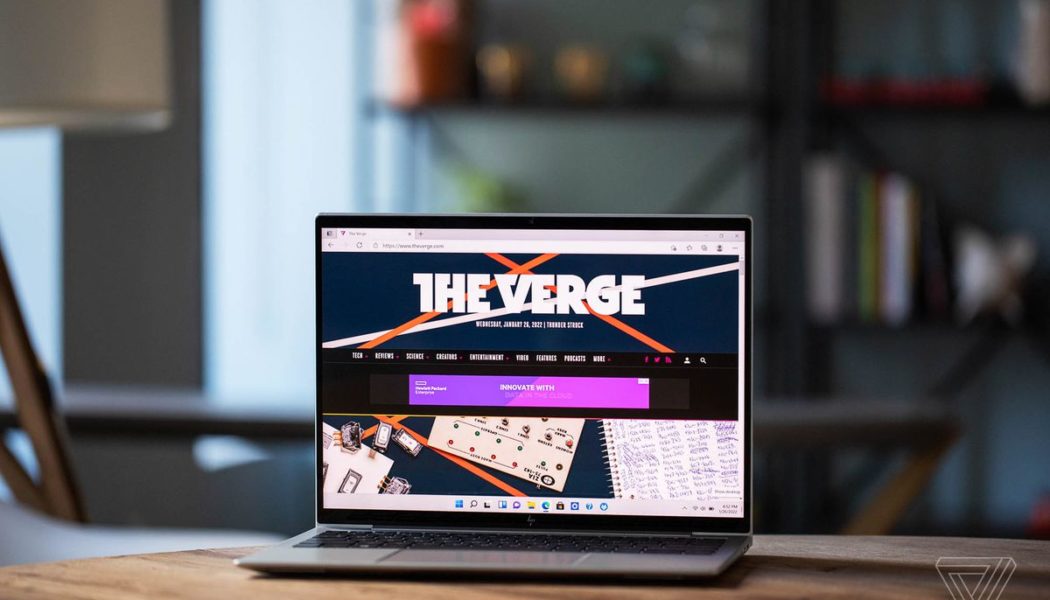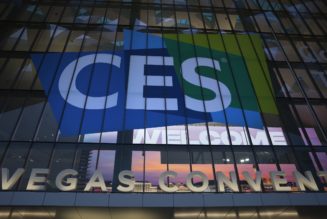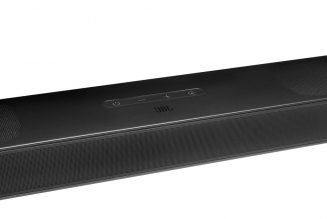After a long, long month of laptop releases, Computex 2022 is finally over. In some ways, it’s the Computex that wasn’t.
The early part of this year was an exciting time to be a laptop reporter. Every company and its mother announced that big ideas were on the way. Wacky products abounded, from monitors to phones. LG Display (which supplied the 13.3-inch panel for Lenovo’s ThinkPad X1 Fold) showed off a 17-inch foldable OLED screen. We saw RGB, OLEDs, and haptics galore. Chipmakers promised architectural innovations and performance gains. We were told that these were all coming soon.
At the end of May was Computex, the biggest laptop-specific show of the year. (Well, it really was all of May — since many global attendees couldn’t get to Taiwan, most companies just did their own thing and dumped their releases whenever, but that’s another story. I’m still recovering from this month of nonstop announcements, please don’t text me.) This would’ve been the perfect time for some of these innovative releases to be, you know, released. Or get a release date.
But we didn’t get them at Computex 2022. The show was, in fact, aggressively unexciting. We got a heck of a lot of chip bumps. We got some higher refresh-rate displays. We got an HP Spectre x360 with rounder corners. (To be clear, I am personally very excited about the rounder corners, but I may be the only person on the planet in this boat.)
Don’t get me wrong: Incremental upgrades, both to internal specs and external elements, are important. They will make a difference in people’s lives. Companies do not need to re-invent the wheel with every single laptop they release. But it is still worth noting that a number of devices that truly seem poised to expand or re-define their categories are not yet here (or if they are, I cannot find them listed for sale).
:no_upscale()/cdn.vox-cdn.com/uploads/chorus_asset/file/23197047/akrales_220126_4991_0035.jpg)
The following are some highly anticipated products announced earlier this year that have still not made it to my desk:
- Asus’s Zenbook 17 Fold OLED, originally announced at CES for Q2 of 2022. There are 25 days left of Q2 as of this writing, and we don’t even have a confirmed price yet. This is one of multiple rumored 17-inch foldable laptops that we’ve expected this year — Samsung also showed one off at CES, and HP is rumored to have one in the works. We didn’t see either at Computex.
- The XPS 13 2-in-1, one of the most significant models in the convertible space. Okay, so this one hasn’t actually been announced yet, but it’s leaked — and according to the leaks, Dell is likely switching this product away from the traditional 2-in-1 form factor and into a Surface Pro-like device. No mention of that in May.
- The non-enterprise version of the HP Elite Dragonfly Chromebook, the single device that Verge staff have been most excited about this year. It’s poised to be the first Chromebook to include a haptic trackpad and Intel vPro, among other impressive new features. This was supposed to ship up in April when it was announced at CES. In early May, we got an update — it’s now coming “this summer”, but not currently in stock.
- Speaking of HP, the also-exciting Dragonfly G3, which finally brings the 3:2 display to the high-end business line and which we saw a prototype of in January, was originally expected in March. Looking at HP’s website, it looks like it’s now not shipping until July.
- Lenovo’s ThinkBook Plus Gen 3, the 2022 release that I’ve been most personally excited about. It’s a 17-inch dual-screen device. While dual-screen devices that put the keyboard in the front of the deck can still be quite good, their positioing doesn’t work for everyone. The ThinkBook Plus puts the screen on the side, keeping the keyboard at its usual position (albeit a bit far to the left) and keeps the touchpad a usable size, an arrangement that could be more practical for many folks. It was legitimately very cool to use in Lenovo’s CES demo area, and could potentially be a useful imagining of the dual-screen form factor. This was supposed to ship in May, but is still “coming soon” according to Lenovo’s website.
- There’s also no sign yet of the ThinkPad Z-series, a funky new ThinkPad line that targets Gen Z, includes a haptic touchpad and a vegan leather cover, and is potentially a new vision for who a business laptop can benefit. This was supposed to ship in May, but no dice so far. (The website, as of this writing, still says “Coming Spring 2022”.
- RDNA 3, AMD’s next generation of Radeon GPUs that are rumored to bring bonkers performance improvements. The refreshes AMD did show off were still a big announcement, but the stated single-thread gains were underwhelming in comparison.
It’s not all bad news. Some of the the most anticipated devices of 2022 have been released on schedule, including a number of products on the gaming side like Asus’s ROG Flow Z13. And, of course, companies deviate from plans all the time. But I did gut-check my impression with Gartner Research vice president Stephen Kleynhans, and it does appear to be true: Across the board, we are seeing delays in PC shipments, which are in turn impacting releases. It’s not a problem unique to the PC space, of course — industries across the board, including the automotive field, are being held up.
:no_upscale()/cdn.vox-cdn.com/uploads/chorus_asset/file/23145969/mchin_200331_4955_0013.jpg)
These delays, Kleynhans believes, are, unsurprisingly, “mostly supply chain issues”, and a lot of it has to do with the current COVID situation in China, which has led to lockdowns in key tech hubs. Kleynhans told me that “until China really opens back up, which seems to be what we’re seeing now, and it can catch up from the backlog that’s been created, we’re going to continue to see disruptions on top of the disruptions that were already there”. He thinks PC availability could be disrupted “at least towards summer and towards the end of the year”.
It’s not only that companies are having trouble getting current-gen units into their hands, in Kleynhans’s view — it has to do with the fulfillment of last-gen orders as well. “If you’ve got a customer who placed an order for 1,000 machines three or four months ago, and they still haven’t received them, you don’t want to release this year’s model while those orders are outstanding,” Kleynhans told me. We’re certainly seeing delays on current models as well — many of Apple’s most recent MacBook Pros are showing ship dates of late July or later. (Apple is heavily rumored to have a new MacBook Air in the pipeline, and it will be interesting to see whether the company is able to stick to its usual near-term availability timeline.)
When it comes to supply chain delays, the PC market is hardly the worst-hit (or most important) industry. The world will continue to turn if 17-inch foldable PCs take longer than expected to ship. And laptop delays are hardly the most important or impactful consequence of this pandemic.
Still, this situation should serve as a reminder of a fact that is, frankly, always worth remembering: The PC space has so many moving parts. Many things had to go right to deliver the laptop you’re typing on right now, and the laptop I’m typing on right now (it’s a Zephyrus G14, if you’re curious) to our doorsteps. It’s fun to live in a world full of haptics, foldables, and 2X performance gains in the early part of the year. But the real world is more complicated and boring, and even the coolest innovations require all kinds of logistical stars to align.









